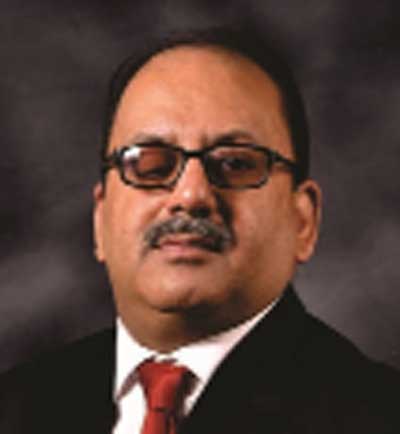KARACHI: In an era where geopolitical undercurrents often colour economic engagement, Pakistan’s enduring alliance with the World Bank and its affiliated institutions stands as a remarkable testament to global trust in the country’s reformist trajectory. Under the astute leadership of Prime Minister Shehbaz Sharif and his committed economic team, Pakistan has not only weathered formidable financial storms but also successfully rekindled the confidence of international lending institutions. The latest financial commitments by the World Bank Group, totalling hundreds of millions of dollars, reaffirm that Pakistan’s credibility as a development partner remains intact – despite India’s concerted attempts to derail these efforts.
Finance Minister Muhammad Aurangzeb’s recent revelation of the World Bank Group’s $700 million loan approval for the RekoDiq mining project serves as a powerful endorsement of Pakistan’s economic direction. Despite strenuous lobbying by India to obstruct this strategic investment, the World Bank Group, rejecting these objections, approved the concessional financing package. Of this amount, $300 million will be provided by the International Finance Corporation (IFC) and $400 million by the International Development Association (IDA), both arms of the World Bank Group.
This development not only marks the third instance in a single month where Indian objections were rebuffed by global lenders, but also underscores a broader narrative – that Pakistan is seen as a viable and promising investment destination. India’s failure to influence major financial institutions like the World Bank, IMF, and ADB reveals a growing divergence between propagandist manoeuvres and institutional realities. All three multilateral bodies have recently sanctioned separate funding tranches to Pakistan, clearly reflecting their refusal to indulge baseless geopolitical biases.
The RekoDiq project, a flagship initiative valued at $6.6 billion, holds transformative potential for Pakistan’s mining and extractive sector. With contributions from Barrick Gold and both federal and provincial governments, this endeavour is not merely an economic exercise but a blueprint for responsible and inclusive growth. The IFC’s coordination role as lead lender and the IDA’s sustainability-linked financing with key performance indicators further enhance the transparency and accountability of the initiative. Metrics such as female employment, local job creation, and efficient water abstraction reflect the project’s alignment with the United Nations Sustainable Development Goals.
During peak construction, the RekoDiq mining venture is expected to generate up to 10,000 jobs, a substantial proportion of which will prioritise residents of Balochistan. This policy of local inclusion is critical, given the region’s socio-economic fragility. In addition, a commitment to allocate a percentage of both construction costs and annual revenue to community development ensures long-term socio-economic dividends.
This robust investment environment is not limited to natural resources. The World Bank’s recently approved $70 million additional credit for the Pakistan Raises Revenue (PRR) project exemplifies the institution’s long-term commitment to systemic reforms. With total resources under the PRR now standing at $470 million, this initiative is reshaping Pakistan’s tax ecosystem. Key achievements include the inclusion of 1.5 million new taxpayers, simplification of tax structures, enhanced transparency, and the deployment of cutting-edge business intelligence tools. These reforms, spearheaded by the Federal Board of Revenue (FBR), are not only improving compliance but also broadening the national revenue base – paving the way for enhanced social spending.
By investing in digital infrastructure, the PRR project supports the creation of a single portal for sales tax payments, streamlined customs operations, and data analytics tools to combat tax evasion. Such investments are crucial for building institutional credibility and public trust, both of which are indispensable for sustained economic reform. The programme’s alignment with the World Bank’s Country Partnership Framework for Pakistan (2026-2035) aims to raise the tax-to-GDP ratio to 15 percent – a target that reflects ambition matched with realism.
Further showcasing this fruitful alliance, the World Bank recently approved a $108 million package for developmental initiatives in Khyber Pakhtunkhwa (KP). These include the Khyber-Pakhtunkhwa Rural Accessibility Project (KPRAP) and the Integrated Tourism Development Project (KITE). With a strategic focus on infrastructure, tourism, and social access, these projects are designed to uplift nearly two million residents, particularly in rural and underserved communities.
Notably, these KP-based projects are emblematic of Pakistan’s evolving policy ethos-one that values climate resilience, local tourism, and inclusive growth. Whether through all-weather rural roads or eco-friendly tourism corridors, these initiatives are tied to long-term development imperatives rather than short-term political gains. The promotion of gender-inclusive education and livelihood opportunities further cements their status as people-centred investments.
In essence, the World Bank’s growing portfolio in Pakistan is not merely a sequence of financial transactions; it is a reflection of renewed faith in Pakistan’s governance and institutional integrity. It is worth noting that such trust does not emerge in a vacuum. It has been painstakingly earned by a government that prioritises macroeconomic stability, structural reform, and diplomatic engagement. Prime Minister Shehbaz Sharif’s team has consistently demonstrated an ability to navigate complex global environments – securing not only financial assistance but also critical technical cooperation.
India’s repeated failures to hinder this cooperation highlight a diplomatic and strategic miscalculation. While New Delhi seeks to weaponise economic diplomacy, global institutions remain grounded in objective performance metrics and governance standards. Pakistan’s economic diplomacy – quiet, consistent, and policy-oriented – continues to triumph where noise and negativity fail.
In the grander scheme of international development, Pakistan’s collaboration with the World Bank and its associated entities like the IFC and IDA is paving the path for a diversified, resilient, and sustainable economic model. From mineral extraction to digital taxation, and from rural roads to eco-tourism, the range of funded projects paints a vivid picture of multidimensional progress.
As the country moves forward, such partnerships will become even more critical. Pakistan’s ambition to elevate its global standing will be fuelled by development projects that create jobs, reduce inequality, and strengthen institutions. These are not just indicators of growth; they are symbols of sovereignty, self-reliance, and global re-engagement.
The trust reposed in Pakistan by the World Bank and other multilateral lenders is not accidental. It is the fruit of painstaking efforts led by a government deeply committed to reform. The message is clear: Pakistan is open for business, open for partnerships, and above all, open to progress. The world has taken note – and stands ready to walk alongside.
Sign in
Welcome! Log into your account
Forgot your password? Get help
Password recovery
Recover your password
A password will be e-mailed to you.





